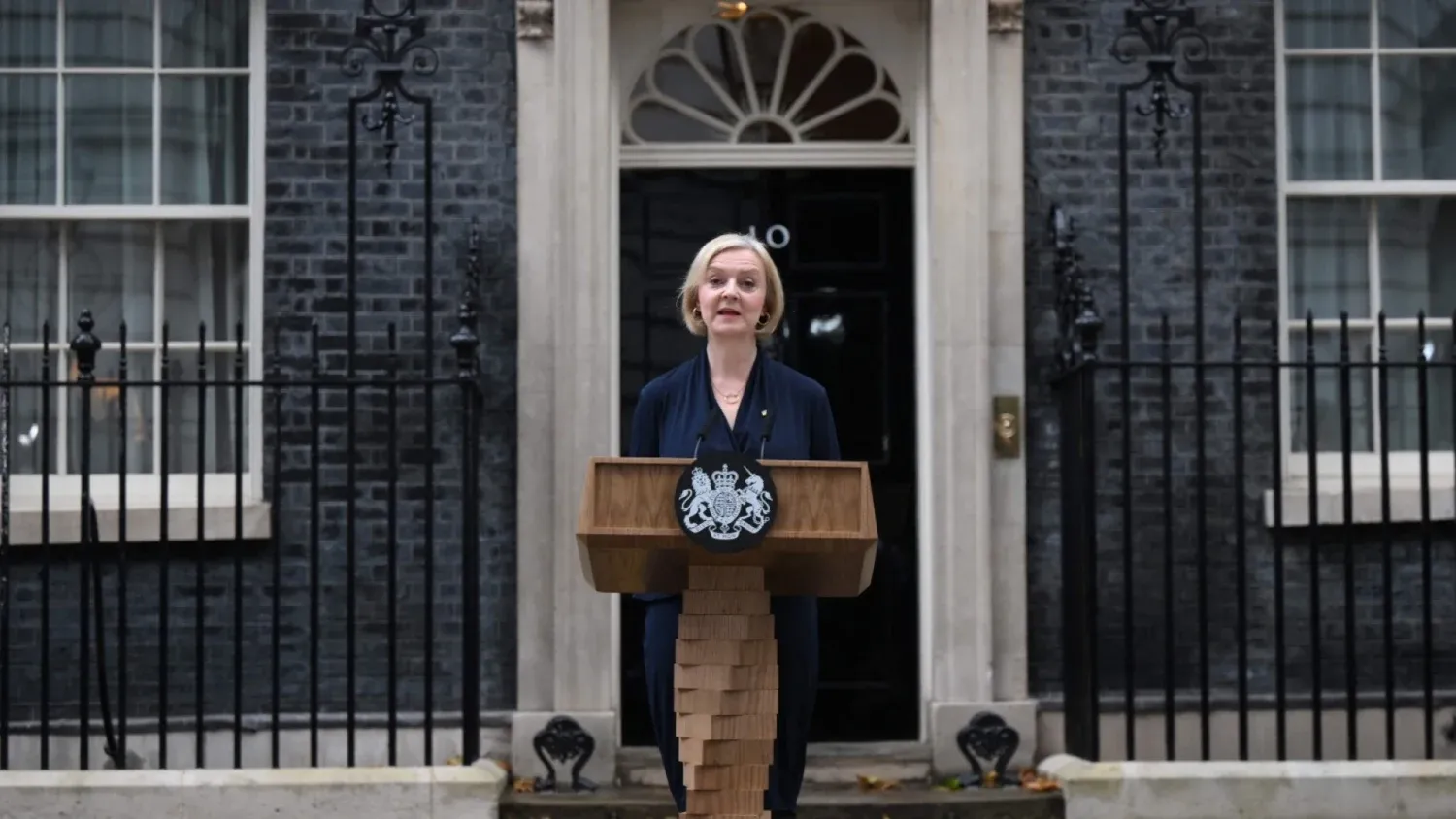As the Tory Party tries to recover from yet another mistake in its choice of leader, even openly discussing bringing back the mistake before last in the unappealing form of 'conviction politician', Boris Johnson, the factional infighting as Tory MPs try to decide "What's in it for me?" continues to dominate UK politics as it has done ever since they chose David Cameron. Meanwhile major problems such as increasing poverty, a collapsing NHS, almost non-existent social care, lack of affordable housing and a stagnating economy are ignored in favour of personal gain and political careers.
On the day Truss was elected, I wrote:
Liz Truss could be the latest in a long line of increasingly incompetent Tory leaders which began with John Major, followed by William Hague, Ian Duncan Smith, Michael Howard, David Cameron, Theresa May and Boris Johnson in that order. Arguably, Tory leaders have been increasingly less competent since Neville Chamberlain, interspersed only by Winston Churchill and (arguably) Margaret Thatcher, who, nasty though she was, can't really be described as incompetent, save only for the Poll Tax debacle that cost her the leadership.Little did I suspect that the interesting times would be so short and that the car crash that was Liz Truss's premiership would be so short-lived. It's almost disappointing that one of the most gratifying spectacles in UK politics - the Nasty Party if full civil war - has come to an end so soon. However, that may be an unrealistic assessment, as there is no sign yet of even a truce, as the backstabbing and manoeuvring for position is to last at least another week as the MPs choose another leader and this time try to deny the 60,000 or so party members a say. After all, they chose, in succession, Theresa May, Boris Johnson and Liz Truss, so clearly they can't be trusted to choose responsibly.
She [Truss] is something of a political balloon, going with the political wind in whatever direction furthers her career. She comes from a left-leaning family and used to go to peace camps with her socialist mother. But she chose the Tory Party to stand as an MP. In the Tory Party she was initially to the left of the party and voted ‘remain’ in the EU referendum. Having been on the losing side she quickly realised she had been a Brexiteer all along and is now an enthusiastic supporter of the idea. It remains to be seen what other principles she will be willing to abandon to retain power. As always, with Tory MPs, “What’s in it for me?” is the only principle worth holding to.
To add to her difficulties, Truss inherits a party, after a fractious and bruising leadership campaign, that is hopelessly divided on a number of issues, with a substantial number holding former Labour 'safe' seats in Northern ‘red wall’ constituencies, who are fearful of losing them at the next election, and she was elected by just 57% of the members - the smallest majority of any leader since they allowed the members a say in the matter.
She also inherits an impending financial crisis with standards of living forecast to fall by 10% in the next two years - in the lead up to the next general election, due in Spring 2024 - with soaring energy prices, zero economic growth, accelerating inflation expected to exceed 20% - levels not seen since the 1970s, increasing interest rates, and an NHS on the point of collapse, due to the 'Brexit bonus' of lots of staff in the NHS and the Social Care sectors returning to their EU home countries, having lost the right to live and work in the UK.
And the Tory Party can no longer get away with blaming everything on the previous Labour Government, having been in government themselves since 2010. Instead, they are now facing the humiliation of having to adopt some of Labour's policies if they are to tackle the impending crises. The Tories are quickly losing their reputation for economic competence, that was never really deserved anyway, having successfully blamed the Wilson/Callaghan government for the economic chaos of the 1970's caused by the 'Barber boom' under Ted Heath, which was a cynical attempt to buy popular support.
What probably won it for Truss was her promise to introduce big tax cuts, which appealed to the Tory Party members whose single political concern is always, "What's in it for me?" She is now faced with either implementing that against all the financial advice that it will do nothing for the poor, who are facing the brunt of the economic crisis, because they don't pay tax, but will be inflationary, so making the poor poorer, or reneging on a central promise to her members to make them richer at the expense of the poor.
[…]
The latest update to this story is that Truss seems to be stuffing her cabinet with those who supported her in the leadership campaign and sacking or refusing jobs to Sunak supporters. This bloodbath might make the cabinet easier to control but will leave a lot of frustrated, ambitious, and embittered Tory MPs on the back benches, when the last thing she needs is enemies. A 60-odd seat majority is no guarantee of an easy time in the Commons, as Johnson discovered. Perhaps she is merely showing her party how tough and ruthless sha can be and how she will deal with disloyalty in the future.
The next two years will be… interesting.
So, how did the oh-so-predictable failure of the Truss premiership come so quickly?
In this article, reprinted from The Conversation under a Creative Commons license, reformatted for stylistic consistency, Matthew Flinders, Founding Director of the Sir Bernard Crick Centre for the Public Understanding of Politics, University of Sheffield, suggests there were five key elements in her rise and fall. The original article can be read here:



